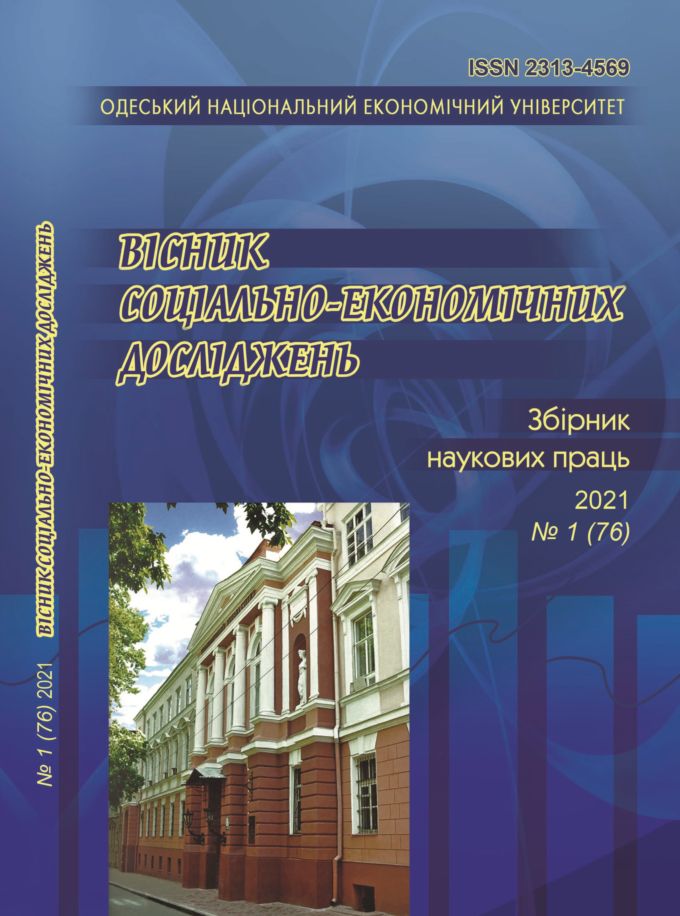MAKING LOGISTICS DECISIONS IN ENTERPRISE ENERGY SUPPLY
DOI:
https://doi.org/10.33987/vsed.1(76).2021.176-189Keywords:
energy logistics, energy supply chain, logistics decision, planning the need for energy, choice of energy supplier, outsourcingAbstract
The article identifies the main logistics decisions that are to be made at the enterprise level to ensure the uninterrupted functioning of their energy system. The purpose of the article is to determine the main logistics decisions, which have to be made by enterprises in order to improve the efficiency of the functioning of energy supply chains. To achieve this goal, the following general scientific methods are used: analysis, synthesis, systematization, theoretical generalization, abstraction and analogy. The article considers such logistics solutions in the energy supply of enterprises as: planning the amount for energy services need, the choice of the energy consumption alternative, the alternative «make or buy», and the choice of supplier. The characteristics of each of these logistic solutions are given and alternatives for their adoption are considered. The factors that should be taken into account when planning the needs of enterprises in energy services are summarized. It is determined what initial data should be considered at planning of the need, and also methods which can be applied. Four variants of consumption of energy services with centralized energy supply are identified. It is proved that the priority type of energy for consumers is electricity. It is proved that the priority type for consumers is electric energy, the factors influencing the choice of the energy supply option are determined. The managerial alternative «make or buy» in the energy supply of enterprises is characterized. The advantages and disadvantages of own productions of energy services are determined. A sequence of ten stages in choosing the option of own production of energy services is developed by the author. The factors influencing the choice of energy service provider for enterprises are summarized. The scheme for selecting process an energy service provider is proposed, which includes nine stages and allows managers to make an optimal logistic decision
References
Tso, G. KF, Liu, F., Liu, K. (2013). The influence factor analysis of comprehensive energy consumption in manufacturing enterprises. Procedia Computer Science, Vol. 17, pp. 752‒758.
Shvets, I. B., Zakharova, O. V. (2002). Management of energy resources at the enterprise: monograph [Upravlenie energeticheskimi resursami na predpriyatii: monografiya], NAN Ukrainy, In-t ekonomiki prom-sti, Donetsk, 184 s. [in Russian]
Osypov, V. I. (2005). Enterprise economics [Ekonomika pidpryiemstva], Maiak, Odesa, 724 s. [in Ukrainian]
Tashcheiev, Yu. V. (2019). Using of renewable energy sources at enterprises: [Vykorystannia vidnovliuvanykh dzherel enerhii na pidpryiemstvakh], Bondarenko M. O., Odesa, 244 s. [in Ukrainian]
Gitelman, L. D., Ratnikov, B. E. (2006). Energy business [Energeticheskiy biznes], Delo, Moskva, 600 s. [in Russian]
Esbensen, T. V., Korsgaard, V. (1977). Dimensioning of the solar heating system in the zero energy house in Denmark. Solar Energy, Vol. 19 (2), pp. 195–199.
Waters, D. (2003). Logistics. Supply chain management [Logistika. Upravlenie tsepyu postavok], YuNITI-Dana, Moskva, 503 s. [in Russian]
Fill, C., Visser, E. (2000). The outsoursing dilemma: a composite approach to the make or buy decision. Management decision, Vol. 38, No. 1, pp. 43–50.
Kondratiuk, D. M. (2014). Optimal supplier as a factor of enterprise competitiveness [Optymalnyi postachalnyk yak chynnyk konkurentospromozhnosti pidpryiemstva], Ekonomika. Upravlinnia. Innovatsii, No. 1. Retrieved from: http://nbuv.gov.ua/UJRN/eui_2014_1_53 [in Ukrainian]
Yastremska, O. M., Pysmak, V. O. (2012). Features of decision making about purchasing and selection of supplier in the process of innovative activity [Osoblyvosti ukhvalennia rishen pro zakupivliu ta vybir postachalnyka v protsesi innovatsiinoi diialnosti], Marketynh i menedzhment innovatsii, No. 2, s. 131–138 [in Ukrainian]
Fil, N. Yu. (2015). Structural model of supplier selection during the project management of prevention of natural situations on the highways [Strukturna model vyboru postachalnyka pry upravlinni proektamy poperedzhennia nadzvychainykh pryrodnykh sytuatsii na mahistralnykh avtodorohakh], Tekhnologiya priborostroeniya, No. 1, s. 62–65 [in Ukrainian]
Wang, H. S., Che, Z. H. (2008). A multi-phase model for product part change problems. International Journal of Production Research, No. 46, pp. 2797–2825.
Liao, Z., Rittscher, J. (2007). A multi-objective supplier selection model under stochastic demand conditions. International Journal of Production Economics, No. 105, pp. 150–159.
Xia, W., Wu, Z. (2007). Supplier selection with multiple criteria in volume discount environments. Omega, No. 35, pp. 494–504.
Wadhwa, V., Ravindran, A. R. (2007). Vendor selection in outsourcing. Computers & Operations Research, No. 34, pp. 3725–3737.
Che, Z. H. (2010). Using fuzzy analytic hierarchy process and particle swarm optimization for balanced and defective supply chain problems considering WEEE/RoHS directives. International Journal of Production Research, No. 48, pp. 3355–3381.
Downloads
Published
Issue
Section
License
Copyright (c) 2021 Socio-Economic Research Bulletin

This work is licensed under a Creative Commons Attribution 4.0 International License.






